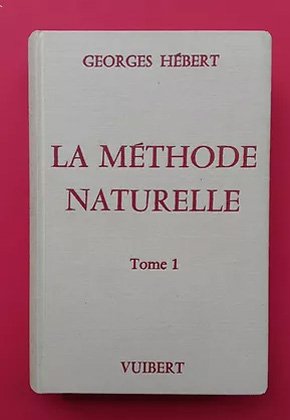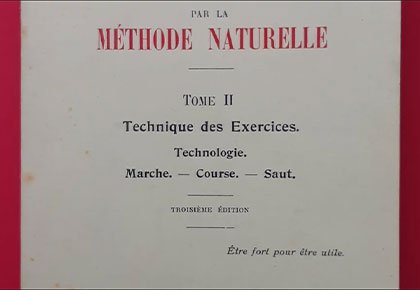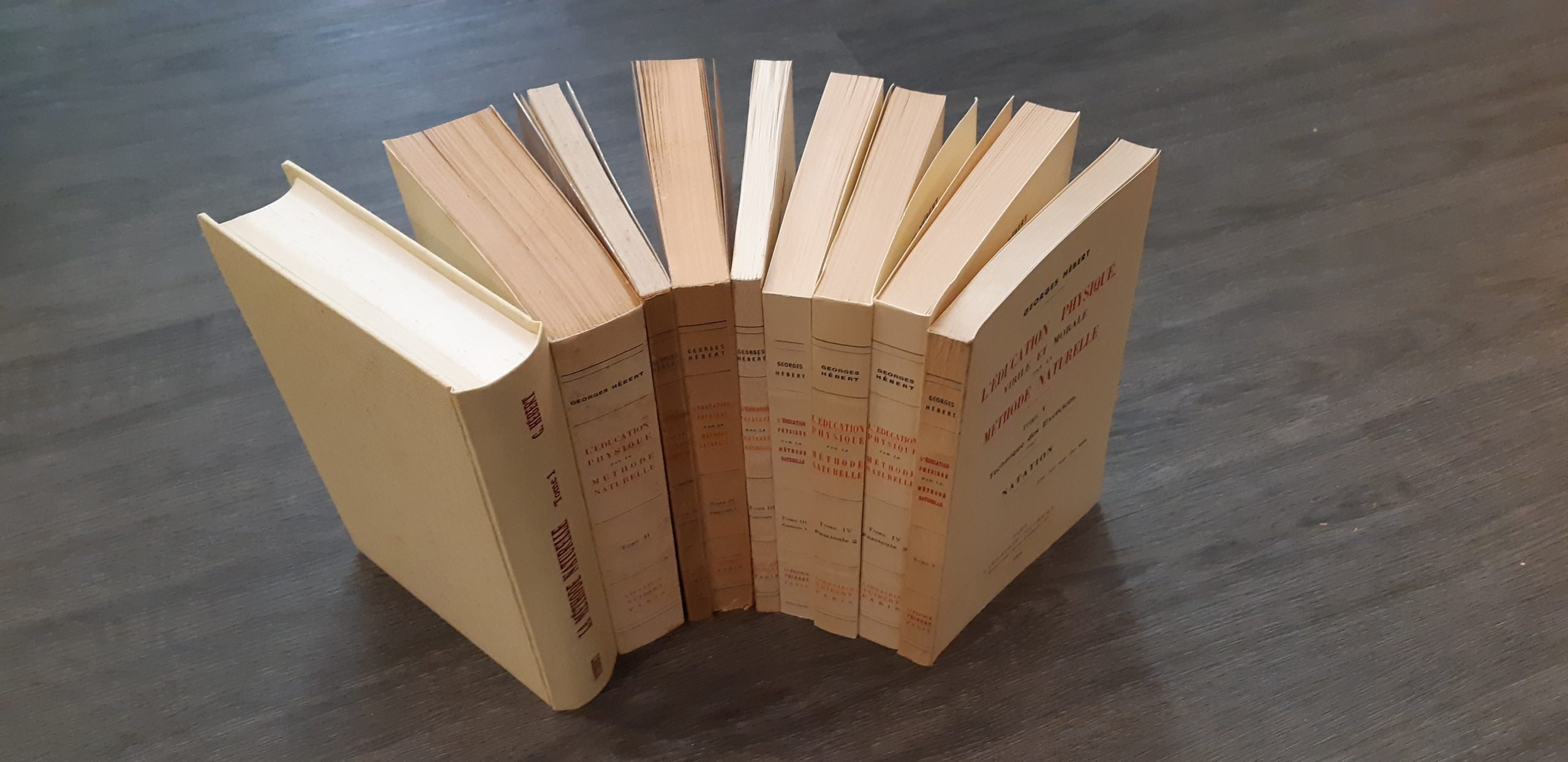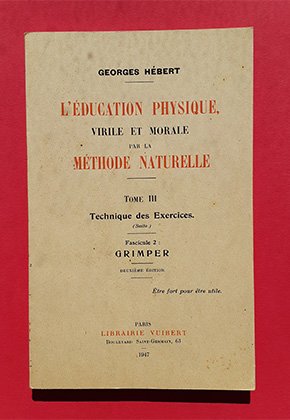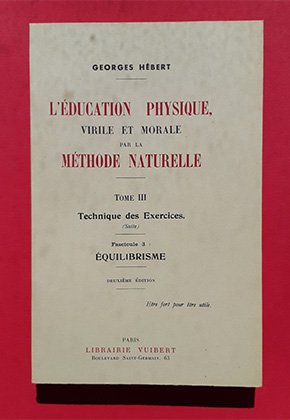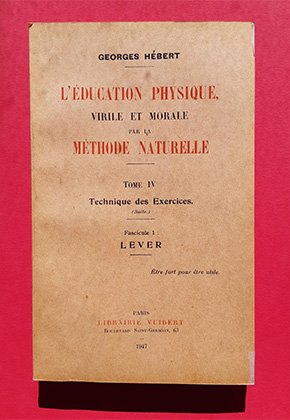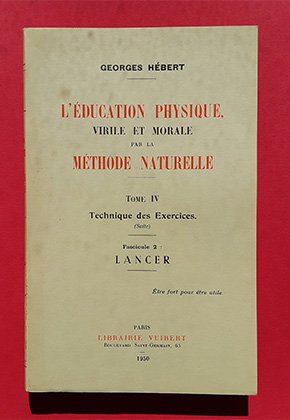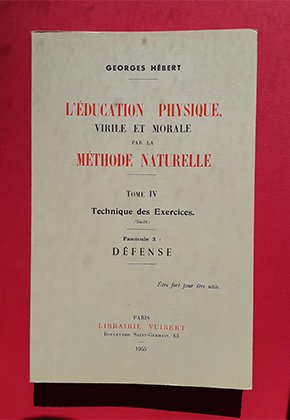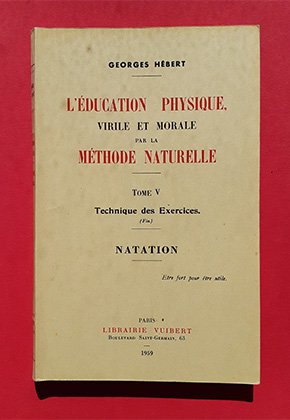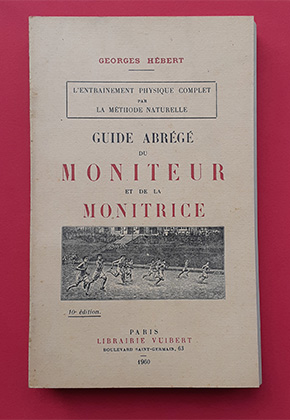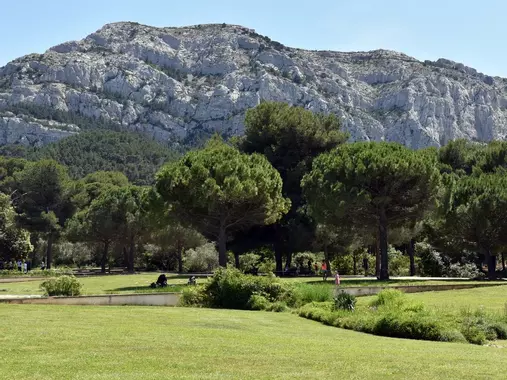The Second World War: Hebertism without Hébert
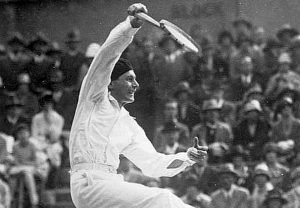
Jean Borotra
1940: This time, it is the Palestra of Deauville which is destroyed by the fighting! As had been the “College of Athletes of Reims” in 1914, the “showcase” of Hébert is, again, condemned to closure…
The Vichy government recently put in place notes the physical unpreparedness of the French armies.
On June 17, 1940, when he wanted to join England, Jean Borotra, tennis player, winner of Wimbledon and Rolland Garros, was appointed, on June 17, 1940, to the General Sports Commissioner. He is a convinced hebertist and he wishes to implement the Natural Method.
But no one dares to consult Georges Hébert to associate him with the government, foreseeing his reaction and his refusal: “In Vichy, we were afraid of the old Master”
And in fact, Georges Hébert stands aside and refuses to meet Borotra.
In the midst of this storm, he maintained his independence and clarified, as he had already done on numerous occasions in the journal Physical Education, his position in a brochure: “les champs d’ébats”:
“It is not slander to note the chronic impotence of state services to solve the problem of physical education of youth”
John Borotra
At the heart of the “storm”: despite the adoption of his method, Georges Hébert will refuse any position in the government and will keep his independence…

At the heart of the “storm”: despite the adoption of his method, Georges Hébert will refuse any position in the government and will keep his independence…
The Vichy government will nevertheless adopt, without the approval of Georges Hébert, the Natural Method, which then becomes the national method.
Under this regime, the Natural Method will be applied “brutally”, out of the Hébertist spirit and by people not necessarily trained in pedagogy, in schools and especially in youth camps. Many young people will therefore be totally disgusted by the “Method” because they cannot distinguish between the method itself and its teaching.
In addition, Georges Hébert is put under surveillance, which will earn him a search by the Gestapo at his offices and at his home. (Régis Hébert; Personal memories of the war)
At the end of the war, Georges Hébert, who was then 70 years old, endeavored to continue the monumental work of writing that he still had to do to complete his work.


